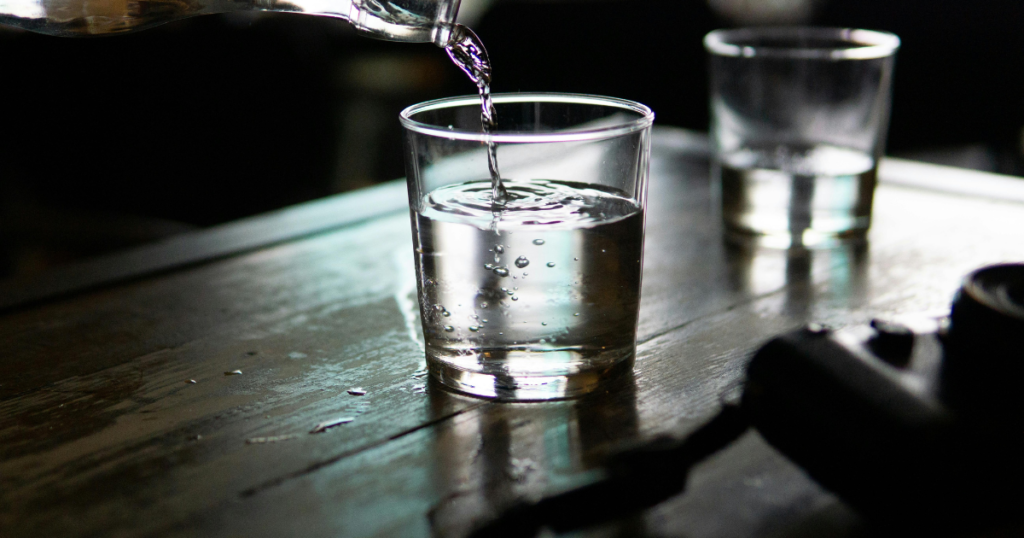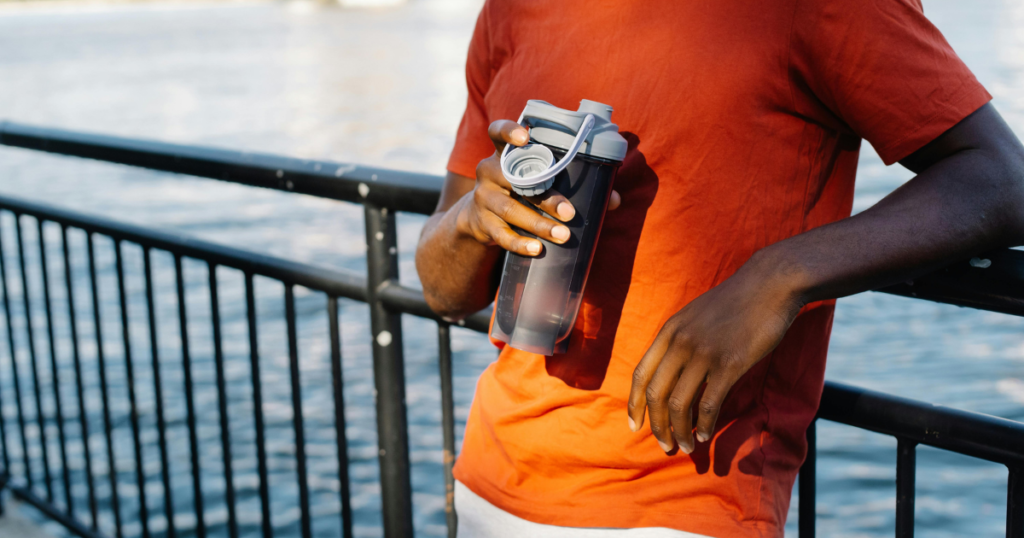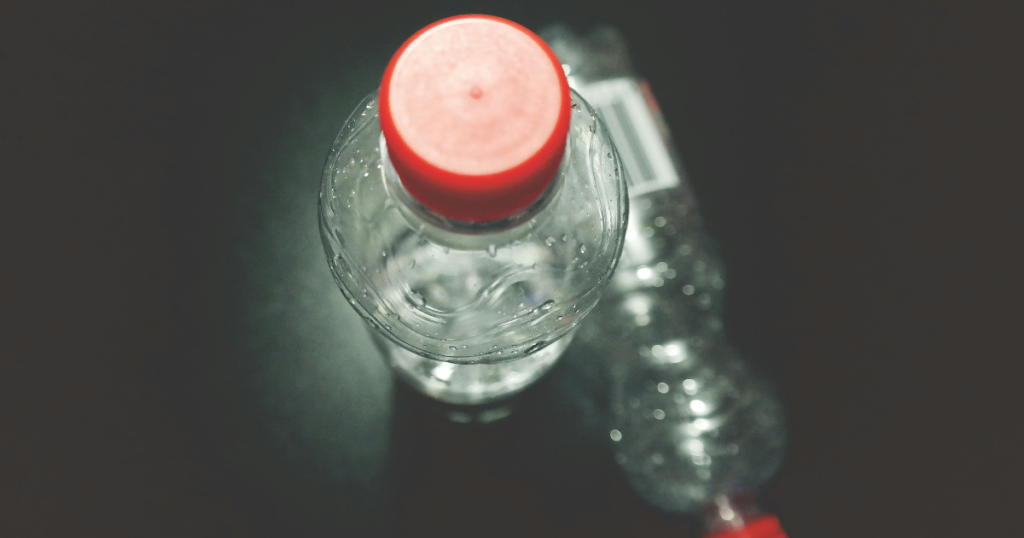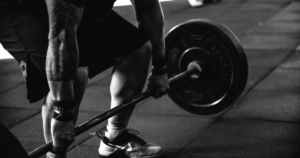
Why Is It Important To Stay Hydrated?
Picture this: you’re in the middle of a workout, all sweaty and you don’t have the energy to push yourself for those last few reps. Your body is simply crying out for some good old H2O.
Incorporating regular water intake into your routine is essential for maintaining optimal health. Whether you’re going about your day, at the gym or on the road, remember that proper hydration is a foundational element, especially for a fit and healthy lifestyle.
It’s been stated that proper hydration can improve mental clarity and focus by as much as 30%. This statistic highlights the essential role hydration plays not only in physical performance but also in cognitive function. Not only does drinking water help keep those muscles working smoothly, but it also keeps you focused and alert throughout the day!

In this article, we will cover the following
Why is hydration important?
In simple terms, hydration refers to maintaining adequate levels of water in the body to support critical physiological functions. While there are other drinks (sports drinks and coconut water) that support hydration, we will be focusing on the role of classic H2O, which is pivotal in supporting every biological function, from temperature regulation to nutrient transport.
Water makes up about 60% of the human body, so as you can imagine, the benefits of drinking water extend way beyond quenching thirst; they include enhanced endurance, improved mood, and increased energy levels.
During exercise, the body loses water through sweat, which can lead to dehydration if not replenished. Water aids in regulating body temperature and lubricating the joints, making every movement smoother and more efficient. Moreover, hydration directly impacts your ability to concentrate and think clearly—essential elements for both athletic performance and everyday tasks.

the role of water in the body
You might think, “I drink water all the time!” but if hydration for you means a coffee to wake up or fizzy drinks with every meal, it’s time for a big refresh. Think of hydration as the key your body needs to stay energised, focused, and active!
Proper hydration is a powerhouse for mental clarity and focus, doing way more than that third cup of coffee (minus the caffeine crash!). Sure, coffee will give you a temporary boost in energy, but aim to have balance throughout the day and prioritise water to function at your best and avoid any post-workout fatigue or cramps.
Aside from quenching your thirst, water in the body plays a vital role for adequate health and performance, not just in exercise but daily activities at all times of the day. Let’s discuss and breakdown the role of water in the body and how hydration contributes to various processes:
- Brain Function and Mood – I’m sure you’ve experienced elements of brain fog, slower response time and poor concentration. Mild hydration can cause you to experience these issues as the brain is nearly 75% water.
Temperature Regulation: When you’re body is overheated, sweat is released to help cool you down, evaporating from the skin. The temperature of the body can therefore be stabilised if you are adequately hydrated. Dehydration will lead to overheating and fatigue.
Nutrient Absorption and Transport: Depending on the foods you eat, essential nutrients such as vitamins and minerals are dissolved by water, transporting them through the bloodstream to cells across the body. So as you can guess, a lack of water can cause the transport process to be slower, which can affect energy levels and overall health.
Joint and Muscle Health: An uncommonly known fact is that the cartilage in your joints and spinal disks is around 80% water. Adequate hydration helps keep these tissues flexible and functioning well, especially if you’re engaging in physical activity. In the long term, this can help keep the joints lubricated and cushioned, preventing injuries.
Cellular Energy and Waste Removal: Water is crucial for cellular function, helping produce energy and remove waste products. It assists the kidneys and liver in flushing toxins from the body, preventing buildup and promoting overall efficiency.
- Digestive Health: Notice how difficult it is to go to the toilet when you haven’t had enough water? The digestion process and water go hand in hand, making it crucial to break down food to help form stool. Without enough water, bowel movements can become irregular which can cause issues such as constipation.
The effects of dehydration
The Short-Term Effects
- Dry Skin: A lack of moisture to the skin will start to affect appearance, which can cause dryness and a lack of natural elasticity, with dehydrated skin becoming tight and staying in place.
- Fatigue and Low Energy: The heart has to work harder to pump blood and oxygen throughout the body as dehydration can hinder blood circulation. In the context of fitness, workouts can feel more strenuous and your muscles are likely to feel drained.
- Headache and Dizziness: This is where mental clarity and focus can be affected, regardless of your daily activities. The blood flow and oxygen to the brain are slow, resulting in disruptions to the processes in the body.
- Muscle Cramps and Spasms: Water and electrolytes are crucial for muscle function, so without proper hydration, this can throw your body’s balance off and cause the muscles to work inefficiently.
The Long-Term Effects
- Digestive Issues: As briefly discussed above, water is needed for the process of breaking down foods and absorbing nutrients. Without water, issues can arise in regards to gastrointestinal issues and the digestion process becomes difficult.
- Kidney Health – Electrolyte balance is maintained and waste is filtered with adequate hydration, so with a lack of water, what happens? Infections and kidney stones become a possibility, potentially leading to chronic kidney disease.
- Heart Health – A lack of water in the body can lead to the blood thickening, so the heart has to increase its efforts to pump it throughout the body. This can increase the risk of high blood pressure and other heart-related issues.
- Joint Health – While it was mentioned that water keeps the cartilage in your joints flexible, dehydration can reduce lubrication which can, in the long term, lead to friction between the joints. This can contribute to stiffness and eventually lead to arthritis, a disease that causes pain and inflammation in the joints.

Daily water intake guidelines for hydration
As important as keeping hydrated is, the benefits of drinking water are only as effective as the amount you intake daily. Of course, some form of water is better than nothing, but if you live an active lifestyle your likely to lose water in various ways. As a result, it only makes sense to increase your intake of water both during and after physical activity to replenish your levels.
Understanding how much water to drink daily is an important step towards maintaining energy, focus, and overall physical health. While specific needs can vary based on individual factors such as age, gender, activity level and climate, there are general guidelines to help kickstart your journey towards hydration.
- Adults: General advice is that adults should consume around 3.7 liters (or about 13 cups) for men and 2.7 liters (or about 9 cups) for women, including all beverages and foods.
- Children – Based on their age, young children can require varying amounts. For instance, children aged 4-8 should aim for about 1.2 liters (or about 5 cups) daily, while those aged 9-13 can increase their intake to about 1.6 to 2.1 liters (or about 7 to 9 cups).
- Teenagers – So why is hydration important for teenagers? Because as they go through periods of growth, this can aid them in their well-being, mentally and physically.
- Special Considerations – This relates to individuals with certain health issues, athletes, pregnant or breastfeeding women and those living in hot climates, where they should aim to increase their water intake to meet their unique hydration requirements.
Life can get busy, so making water a priority empowers you to perform at your best. My methods of taking charge of my water intake ensure I’m able to perform my best when carrying out tasks at work and when I’m playing football or weightlifting. I make sure to drink at least half a litre when waking up, and by spacing out my intake, this is how proper hydration boosts mental clarity and focus for me throughout the day.
common hydration myths
I’m here to tell you that hydration is not a once size fits all process. My methods of keeping hydrated and the frequency of how much I drink might not work for others, so I would never advocate drinking a certain amount of water at a certain time as everyone’s body differs in terms of the requirements of when you need water and how much at one time.
Let’s take a look at some misconceptions that people may have when it comes to how much water you need to have daily:
- “You Only Need X Glasses a Day” – The guidelines serve as a simple rule of thumb, but realistically only you will know how much water your body requires. Consider your age, weight, climate and physical activity levels and ensure you listen to your bodys signals!
- “Clear Urine Indicates Optimal Hydration” – Clear urine shouldn’t always be the goal as this doesn’t necessarily mean your well hydrated. This can mean you’re overhydrated, which can dilute essential electrolytes. You ideally want to see a pale yellow colour, but make sure to consider your body’s needs rather than relying on the urine colour.
- “Caffeinated Beverages Dehydrate You” – A common misconception is that consuming caffeinated drinks like coffee or tea causes dehydration. One thing to know is that these drinks actually contribute towards your daily hydration, so make sure to not go overboard and balance out your intake with water throughout the day.
- “Drinking Lots of Water Helps With Weight Loss” – For individuals wondering why hydration is important if it doesn’t help with weight loss, one thing to know is that it can aid in managing hunger by promoting fullness. By drinking water before meals, this can reduce your calorie intake throughout the day, but it’s not a magic solution for weight loss. Look to combine hydration with a balanced diet and regular exercise.
The benefits of drinking water extend to every aspect of health, proving why staying hydrated is one of the simplest yet most powerful wellness practices. Despite these common myths, tailor your hydration to your individual needs for your fitness goals!
The bottom line
The benefits of drinking water are endless—we’ve spoken about why hydration is important and drinking water during exercise for overall health and fitness. So next time you’re tempted to skip that sip of water because “you’re not thirsty,” just remember: even your brain needs its daily dose of hydration. From enhancing mental clarity and focus to aiding digestion, regulating body temperature, and transporting nutrients, the role of water in the body is indispensable.
If you’re looking to take your fitness to the next level, make hydration a top priority in your routine for long-term success. For further tips and guidance into improving your health and fitness journey, be sure to keep an eye out for our upcoming blog posts and digital products, where you can track your daily water intake with ease!

